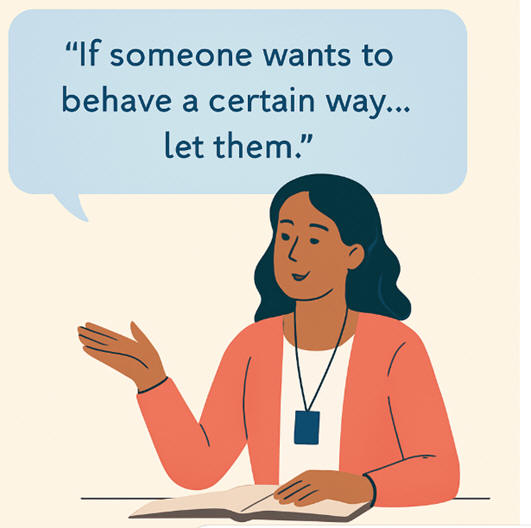|
|
||
|
Let Them
In the fast-paced and emotionally demanding world of teaching, many educators carry the emotional weight of every learner's behaviour, every colleague's opinion, and every parent's expectation. But what if there was a simple mindset shift that could ease this pressure, build emotional resilience, and actually make teachers more effective and fulfilled? This is where Mel Robbins' Let Them Theory offers a fresh and powerful perspective. What is the 'Let Them Theory'? Popularised by motivational speaker and author Mel Robbins, the Let Them Theory is rooted in the idea of emotional detachment from things you cannot control. At its core, it means: "If someone wants to behave a certain way... let them. Focus instead on what you can control - your reaction, your energy, and your values." Rather than getting emotionally entangled in others' actions, the theory encourages people to "let them" do what they're doing, and choose peace over people-pleasing, control, or frustration. This is not about giving up responsibility or care - it's about conserving energy for what truly matters. How Does This Apply to Teachers? Teaching in South Africa is both inspiring and incredibly challenging. With overcrowded classrooms, varied learner needs, and social pressures, it's easy for teachers to feel overwhelmed. The Let Them Theory can be a transformative mindset for teachers who want to succeed without burning out. 1. Let Learners Take Responsibility Some learners won't complete homework, follow instructions, or show interest despite your best efforts. Instead of personalising their behaviour, let them. This doesn't mean ignoring it - but rather detaching emotionally from their decision and calmly applying the appropriate consequence or support. ✅ What to do instead: Set clear expectations and boundaries, provide support, and let learners choose their actions within that structure. Their choices are not a reflection of your worth or effort. 2. Let Colleagues Be Who They Are Not all staff members will share your work ethic, vision, or teaching style. Trying to change or control them can cause frustration. Let them be who they are, and focus your energy on your own growth and impact. ✅ What to do instead: Lead by example, collaborate where possible, and maintain professionalism without taking things personally. 3. Let Parents Think What They Want Parents may not always understand your methods or decisions. Some may even criticise you unfairly. Rather than entering into conflict or people-pleasing, let them have their opinions, while you stay grounded in your professional judgment. ✅ What to do instead: Communicate clearly and respectfully, listen with empathy, and stand firm in your educational decisions. 4. Let Go of the Need to Be Perfect Many teachers feel pressure to be the perfect role model, lesson planner, mentor, and administrator. This pressure leads to burnout. The Let Them Theory invites you to let yourself be human. ✅ What to do instead: Accept that not every lesson will go perfectly. Reflect, learn, and move forward. Becoming a Successful Teacher with the 'Let Them' Mindset Great teachers are not just experts in content - they are emotionally intelligent, calm under pressure, and focused on what truly matters: learner growth. By applying the Let Them Theory, teachers:
Final Thoughts The Let Them Theory doesn't mean indifference - it means wisdom. It's a way for teachers to stay centred in their purpose, without being drained by every challenge around them. By letting others be who they are, and focusing on your own path, you gain the clarity, energy, and strength needed to thrive. So the next time a learner misbehaves, a colleague complains, or someone doubts your abilities, take a deep breath - and let them. Then carry on being the inspiring teacher you were called to be. ***** |
||
|
|
